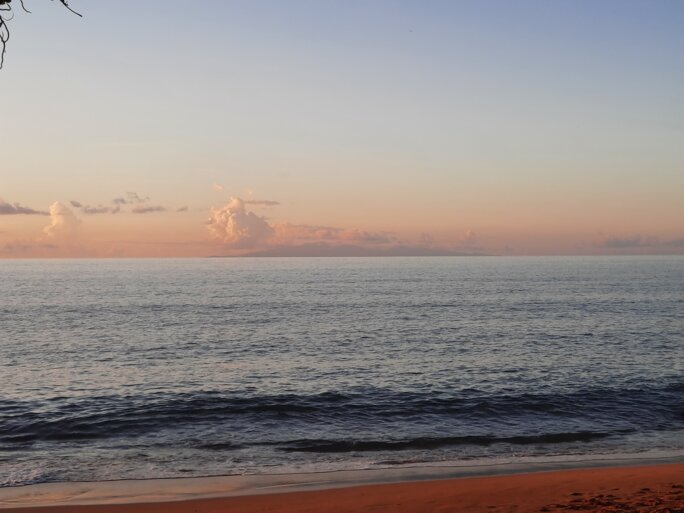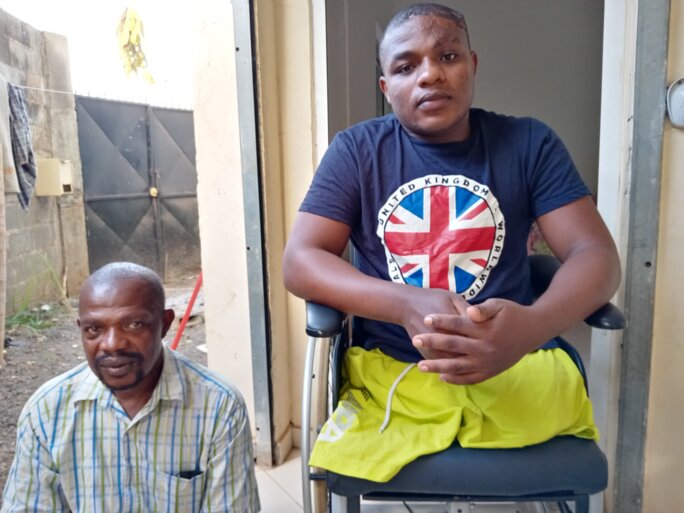“Jeje! ('Hello!'), Jema ('How are you?')”. The courtesy of these brief exchanges in the local Shimaore language is deceptive. So, too, is the laid-back attitude of the inhabitants at Tzakany beach in the village of Tsingoni on the north of Mayotte's main island Grand-Terre.

“The kwassas [editor's note, small wooden craft used by migrants from neighbouring Comoros to get to the French département or county of Mayotte in the Indian Ocean] no longer come to the village's beaches because if they did so, within two minutes the whole population would be there to put them back to sea,” said a disillusioned resident from the small neighbouring fishing town of Mtsamboro. “Not so long ago some local residents stopped a helicopter ambulance from bringing help to a sick child who was getting off a kwassa and who needed urgent hospital treatment,” recalled a journalist from Mayotte's capital Mamoudzou.
The mood on the stiflingly-hot northern coast of Grand-Terre can switch in an instant, from a laid-back atmosphere to an outpouring of violence and brutal aggression. The various stories that circulate on this overheated and overpopulated Indian Ocean département have one thing in common: they all help stoke up the rhetoric and feed into an ever-tougher security clampdown in which the sacrificial victims are migrants from Anjouan, Mohéli and Grande Comore, the nearby islands which form the independent nation of the Comoros.
Migrants have been arriving in Mayotte from these three Comoros islands ever since the 1995 'Balladur visa', which is named after the then-prime minister Édouard Balladur. This visa ended the free movement of people between the four islands of the Comoros, of which Mayotte was the only one to remain under French rule when the rest of the archipelago became independent in 1975.

Enlargement : Illustration 2

Standing on Mayotte's northern beaches in clear weather one can see Anjouan, its outline etched beneath the clouds. At night-time, standing on the other side of this 70 kilometre (about 43 miles) stretch of water, it is Mayotte that stands out, its lights shining brightly over the dark Indian Ocean, while Anjouan, where electric power is a rarity, remains in darkness.
Sometimes the attempts to cross these waters prove fatal. The sinking of many makeshift 'kwassa-kwassa' boats between 2002 and 2012 led to at least 10,000 deaths, according an estimate in a report by the French Senate. Since then there has been a shortage of figures. In November 2020 a local association published a guide aimed at families of those who have disappeared or died at sea, but it does not contain any exhaustive list of figures. The French authorities told Mediapart that there was a “real issue” but did not supply a figure for the number of formal proceedings that have been opened to investigate the “cause of death” when a body is found on the coastline. These details are apparently unavailable “because they would necessarily be incomplete due to the fact that sinkings haven't only taken place in French territorial waters”.
One night in November 2019 a kwassa-kwassa which definitely was in French territorial waters was intercepted by a vessel from the French border police the Police aux Frontières (PAF). The makeshift craft was not far from the little island of Chissiou Mtsamboro which lies directly opposite Anjouan. On board were 19 people including Djassadi Farid, aged 26, a farmer of Comorian nationality and his family's main breadwinner. He was making the journey to Mayotte for the first time. When Mediapart met him on Mayotte, he said he had come to the French département to “seek a new life”, employing an expression commonly used by migrants here.
On that particular evening the sea was calm and visibility was good. The PAF vessel struck the kwassa-kwassa several times. Frightened by the police manoeuvres Djassadi had stood up just before the first collision and fell into the sea. No one heard his cries for help, which were lost in the panic of the chase. When it passed close by a second time the police vessel's propellers severed the young man's legs and he also suffered serious head injuries.
Mediapart has seen the statements provided by eyewitnesses who described a “sea of blood so horrifying that even the police were afraid and told everyone not to look”. Djassadi was taken to the Centre Hospitalier de Mamoudzou (CHM) where he survived, but both of his legs had to be amputated.
To this day there have been no proceedings against the police officers, who have simply been interviewed as witnesses. The only person place under formal investigation by the judge investigating the matter is the pilot of the kwassa-kwassa for “failing to cooperate … during a boat inspection at sea”, “assisting the illegal stay of a foreigner in France” and “breaching safety requirements”.
“The investigation is still going on,” the prosecutor at Mamoudzou, Yann Le Bris, said when questioned by Mediapart. “From the information that I have, it appears that before being expelled to Anjouan the witnesses to the events were questioned at the request of the investigating judge. It is best to be cautious in this case. The judiciary is not hindered from doing its job because it involves the daily activities of the police services, this case was not conducted in a rush.”
However, it seems that no one sought to find fault with the PAF in this case, and the French authorities in Mayotte stand resolutely behind the forces of law and order. “The first task and the first reflex of those who intercept at sea is saving lives and ensuring people's safety,” said Nathalie Gimonet, sub-prefect in charge of the fight against clandestine immigration on Mayotte. “Because very often the people on board can't swim, the priority is to get them on board the police vessel in order to make them safe, away from those overloaded and unstable craft”.
In these circumstances why did the police simply not let the people reach the beach first? “How can you explain such a tragedy if the first concern of those intercepting at sea was to make people safe?” asked Marjane Ghaem, a barrister in Mamoudzou who is advising Djassadi Farid. “It was in fact the pursuit that cost Djassadi his legs,” she said.
Djassadi is currently living on Mayotte in the hope of getting a residency permit. When he learned what had happened to his son his father came to join him, and the pair now living in hiding from the police. They survive thanks to humanitarian aid and are cared for by the Red Cross in a residential district next to Mamoudzou. Help, prosthetic limbs and a right to stay on the island were all promised to the young man when he was in hospital, but these promises have not subsequently been kept. He was only just able to keep his wheelchair when he was asked to leave the hospital at short notice. And Djassadi's attempts to obtain a residence permit have now come to a standstill.

Enlargement : Illustration 3

He is not the only person in this situation. Half of the people living on Mayotte are there illegally; migrants from Anjouan, Mohéli and Grande Comore, have fewer rights to citizenship than ever.
“The health crisis has made the ongoing difficulties here worse,” said Pauline Le Liard, who is project manager for the local branch of La Cimade, a non-governmental organisation that helps migrants. “Problems in getting access to the prefecture, problems in renewing residence permits, the illegal expulsion of people who have the right to stay, the illegal expulsion of minors, the violation of children's rights to live with their parents; there's been a rapid flow of such cases ever since August,” she said. Until August 2020 the borders of the neighbouring Comoros were closed, meaning that the country would not take back any of its citizens. This stopped the French authorities on Mayotte from reaching the huge goal of 31,000 removals a year, which had been their target before the Covid crisis.
The return to a high level of expulsions has had several consequences. First of all it has led to the creation of administrative detention areas or 'LRAs' which are already at full capacity, to supplement the overloaded administrative detention centre or 'CRA'. The LRAs are designated detention areas created by a decree from the prefect. “The conditions in an LRA are inhumane, 15 people are shut up in 20 square metres, women, men and children put together, with no access to the law, and they put the air con on maximum to avoid the smell,” said one lawyer close to the service that runs the CRA, who asked to remain anonymous. “There are no inspections by an independent authority in these places,” they added.
Another consequence of this high level of expulsions has been an increase in the number of minors left on their own, while disturbances due to clashes between teenagers from several villages are becoming more frequent with every week. They regularly degenerate into pitched battles and provoke terror in the local population. A citizens collective called 'Mayotte en Souffrance' recently reminded the public authorities about the need to contain these violent disturbances and called for “police reinforcements” and the “construction of a prison for [the] criminals who were born in France”. Yet the provision of extra officers is not on the agenda and locals will have to rely on existing police staffing levels to help quell the violence. The issue now is whether they can prevent the peace in France's 101st département from disintegrating for good.
-------------------------------------------------------------------------------------
- The original French version of this article can be found here.
English version by Michael Streeter


